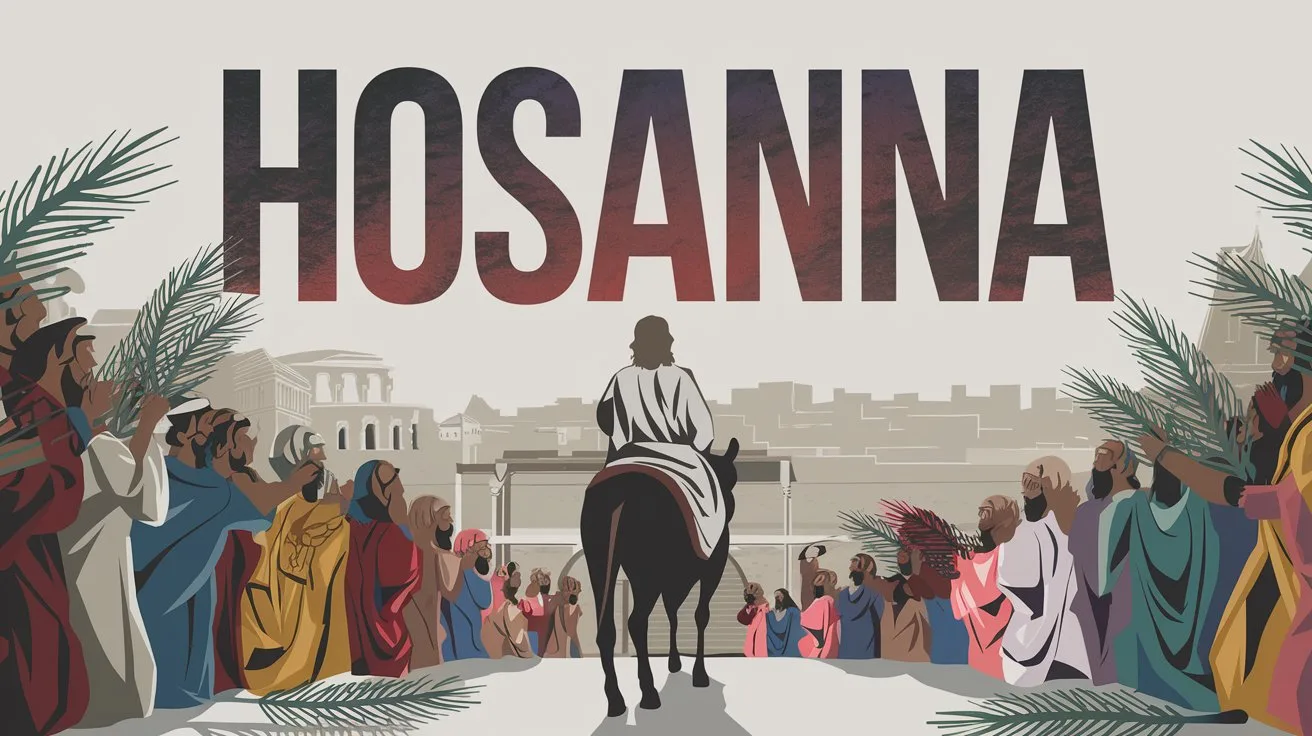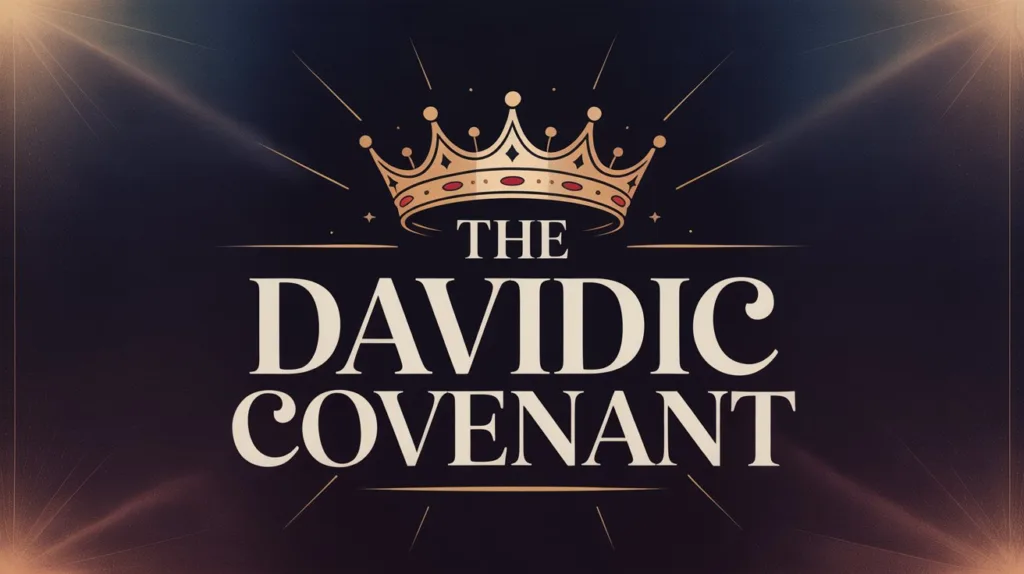The word “Hosanna” is one of the most significant expressions in the New Testament, especially during Jesus’ triumphal entry into Jerusalem. It is a word filled with prophetic meaning, expectation, and recognition of Jesus as the Messiah. To fully understand why the people shouted “Hosanna” as Jesus entered Jerusalem, we need to explore its origin, biblical usage, and its fulfillment in Christ.
The Meaning of Hosanna
The word “Hosanna” comes from the Hebrew “Hoshia na” (הוֹשִׁיעָה נָּא) which means “Save now” or “Save, we pray!” This phrase appears in Psalm 118:25, which was a part of the Hallel (Psalms 113–118), sung during Jewish feasts, particularly Passover. The full verse reads:
“Save now, I pray, O LORD; O LORD, I pray, send now prosperity.” (Psalm 118:25)
By the time of Jesus, “Hosanna” had evolved into an expression of praise, recognizing God’s power to save. The people were not just asking for salvation; they were declaring Jesus as the one who brings salvation.
The Triumphal Entry
As Jesus rode into Jerusalem on a donkey, fulfilling Zechariah 9:9, the crowd began shouting “Hosanna!” and waving palm branches:
“Then the multitudes who went before and those who followed cried out, saying: ‘Hosanna to the Son of David! Blessed is He who comes in the name of the LORD! Hosanna in the highest!'” (Matthew 21:9)
This event was not random; it was deeply prophetic.
Jesus as the Messiah
The people recognized Jesus as the fulfillment of Psalm 118:25-26:
“Blessed is he who comes in the name of the LORD! We have blessed you from the house of the LORD.” (Psalm 118:26)
By calling Him the “Son of David,” they were acknowledging Jesus as the rightful King, the promised Messiah from David’s lineage (2 Samuel 7:12-13).
The Symbolism of Palm Branches
Palm branches were a symbol of victory and kingship. In Jewish history, palm branches were waved in celebration of military victories and during the Feast of Tabernacles as a sign of rejoicing in God’s deliverance (Leviticus 23:40). The crowd was declaring Jesus as their victorious King.
Hosanna in the Highest
When they shouted, “Hosanna in the highest!” (Matthew 21:9), they were calling on heaven itself to confirm Jesus’ kingship. It was an appeal to God to establish His reign through Jesus.
Why Did the People Shout Hosanna?
The people were crying out for deliverance, both politically and spiritually. Many of them expected Jesus to overthrow the Roman occupation and restore Israel’s earthly kingdom. However, Jesus came to bring a greater salvation: deliverance from sin and death.
Their cry of “Hosanna!” was both correct and incomplete. They rightly acknowledged Jesus as the Messiah, but they misunderstood the nature of His mission. Jesus was not coming to be a political king, but to be the Lamb of God, taking away the sin of the world (John 1:29).
Jesus’ Response to Their Praise
Unlike other times when Jesus told people not to reveal His identity (Matthew 16:20), here He accepted their praise. When the Pharisees rebuked Him, He responded:
“I tell you that if these should keep silent, the stones would immediately cry out.” (Luke 19:40)
Jesus was making it clear: His time had come. The King had arrived, not with military might but with humility, riding on a colt (Zechariah 9:9). This moment was a divine appointment.
Hosanna and the Cross
Ironically, just days after shouting “Hosanna,” many of the same people would cry out, “Crucify Him!” (Matthew 27:22). Their expectations of Jesus as a military deliverer were crushed when He allowed Himself to be arrested and beaten. They wanted a conquering king, but Jesus came first as a suffering servant (Isaiah 53:3-5).
Yet, their cry of “Hosanna” was still answered (just not in the way they expected). Jesus did save them, but not from Rome. He saved them from sin and eternal death through His crucifixion and resurrection (1 Corinthians 15:55-57).
Hosanna for Us Today
Today, when we cry “Hosanna,” we are not asking for salvation from earthly troubles but rejoicing in the salvation that Jesus has already accomplished. We recognize Him as our Savior, our King, and the one who will return in glory.
“After these things I looked, and behold, a great multitude which no one could number, of all nations, tribes, peoples, and tongues, standing before the throne and before the Lamb, clothed with white robes, with palm branches in their hands, and crying out with a loud voice, saying: ‘Salvation belongs to our God who sits on the throne, and to the Lamb!'” (Revelation 7:9-10)
Just as they waved palm branches and cried “Hosanna” at Jesus’ first coming, we will one day worship Him with palm branches in heaven, celebrating the final victory of our King.
My Final Thoughts
The cry of “Hosanna” was a cry for salvation, and Jesus answered it in the most unexpected and glorious way. The people wanted temporary deliverance, but Jesus gave them eternal salvation.
When we shout “Hosanna” today, we acknowledge Jesus as our King, our Savior, and the fulfillment of all prophecy. He is the one who has saved us, is saving us, and will ultimately bring us into His eternal kingdom. Until then, we join the voices of those who cried out in Jerusalem and those who will worship in heaven:
“Hosanna to the Son of David! Blessed is He who comes in the name of the Lord!”





 Get the book that teaches you how to evangelize and disarm doctrines from every single major cult group today.
Get the book that teaches you how to evangelize and disarm doctrines from every single major cult group today.